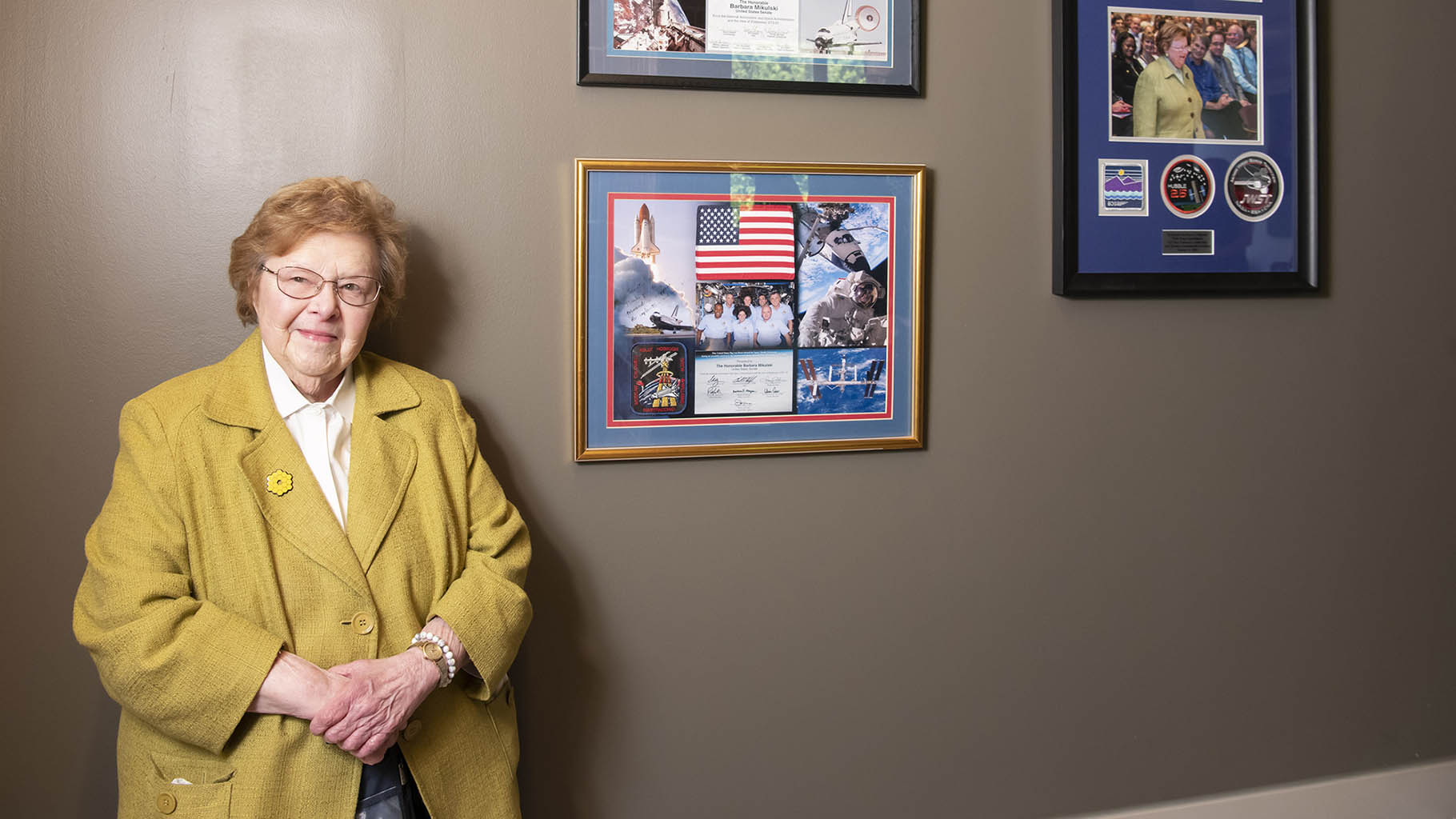Barbara Mikulski Donates Space Collection to Space Telescope Science Institute in Baltimore

The Space Telescope Science Institute (STScI) in Baltimore, Maryland, is thrilled to announce that retired U.S. Senator Barbara A. Mikulski is donating her space memorabilia collection to STScI. The collection includes framed astronomical images, photos, illustrations, and models. Also included in the collection are signed presentation plaques from the crews of two of the Hubble Space Telescope’s servicing missions thanking Senator Mikulski for her support.
Senator Mikulski, the longest-serving woman in U.S. Congressional history, was one of Hubble’s biggest cheerleaders and a staunch supporter of the space telescope and STScI. As a Senator, she advocated for Hubble and for the next-generation space telescope, now named the James Webb Space Telescope. When the last scheduled Hubble servicing mission was canceled in 2004, Mikulski helped lead the cause to reinstate the Hubble repair visit. That servicing mission’s repairs were pivotal in keeping Hubble functioning today. She is also wrapping up her tenure as a Johns Hopkins professor of public policy and an advisor to the university’s president this spring semester.
“I’m so pleased that the Space Telescope Science Institute here on the Johns Hopkins campus will be the new home of my space collection,” said Mikulski. “During my time in Congress, I had the honor of helping all the exceptional men and women who made our space program the best in the world, and the epicenter for astronomy and astrophysics has been Baltimore’s own Space Telescope Science Institute.”
She continued, “From the scientists who teach us about dark matter and the origins of the universe, to the creative graphics artists who connect Hubble’s breathtaking images to the world’s classrooms, to all the valuable support staff who keep the operations running non-stop – they’ve all made the Institute the world-class facility it is today. I feel like I’ve been part of this talented team all these years, so the Home of Hubble and now Mission Control for Webb seems like the ideal place to permanently share my space memories and memorabilia.”
The Space Telescope Science Institute honored Senator Mikulski in 2012 by naming the world’s largest astronomical data archives after her. Called the Barbara A. Mikulski Archive for Space Telescopes, or MAST, the huge database contains astronomical observations from several NASA space astronomy missions, including Hubble, as well as some ground-based observatories. Mikulski received another honor in 2012 when a distant, exploding star observed by Hubble was named Supernova Mikulski.
“We are gratified and honored to house Senator Mikulski’s space memorabilia collection here at the Space Telescope Science Institute, where service and science are essential elements of our mission to help humanity explore the universe with advanced space telescopes and her namesake data archive,” said STScI director Kenneth Sembach. “We cherish her continued relationship with the Institute and our staff. Her unparalleled efforts to advance astronomical research and her legacy of accomplishment embodied in this collection serve as an inspiration and a reminder to all who see it that anything is possible when we work together and reach for the stars.”
The items donated by Senator Mikulski will be displayed in the lobby and library of the Muller Building on the Johns Hopkins University Homewood campus.
The Space Telescope Science Institute is expanding the frontiers of space astronomy by hosting the science operations center of the Hubble Space Telescope, the science and mission operations centers for the James Webb Space Telescope, and the science operations center for the Nancy Grace Roman Space Telescope. STScI also houses the Barbara A. Mikulski Archive for Space Telescopes (MAST), which is a NASA-funded project to support and provide to the astronomical community a variety of astronomical data archives, and is the data repository for the Hubble, Webb, Roman, Kepler, K2, TESS missions and more. STScI is operated by the Association of Universities for Research in Astronomy in Washington, D.C.
